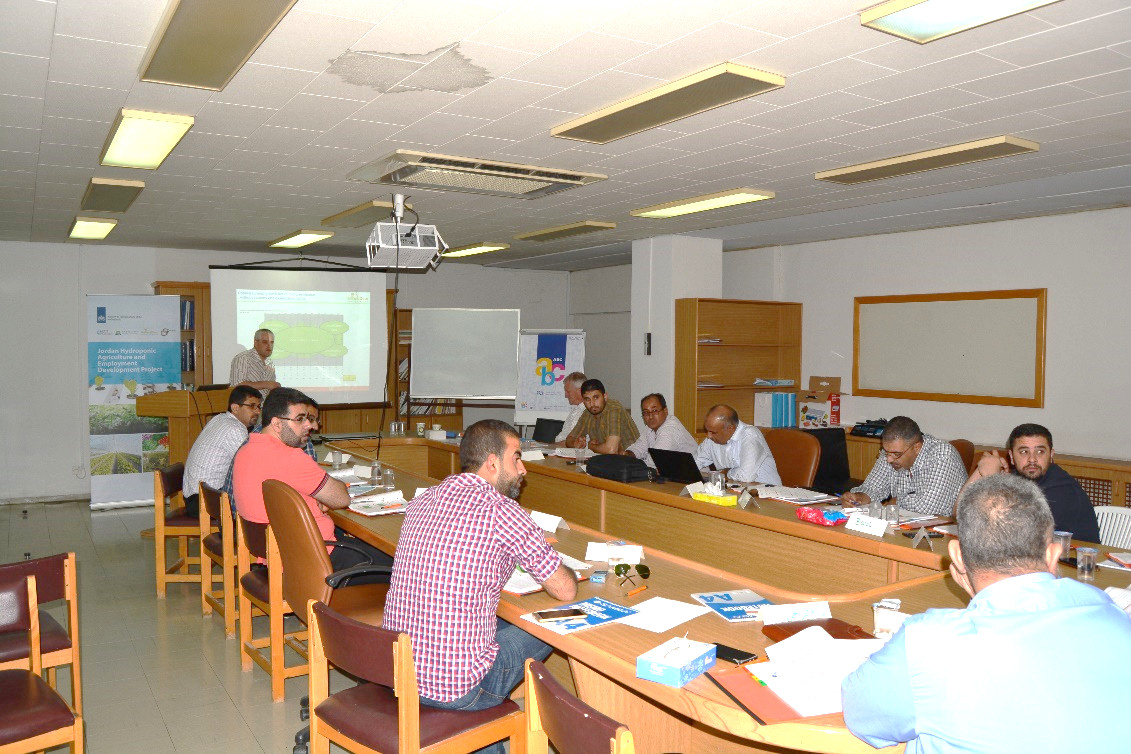 The knowledge and skills base of Jordan’s horticulture sector is a crucial success factor for enhancing and supporting the production and post-harvest value chain. HAED-Jo aims to improve and expand the skills and capacity of the workforce through practical and theoretical training and facilitation of cross-institutional collaboration in order to expand the capacity to adopt and operate advanced systems. To that end, the project established a team of 13 trainees made of representatives from key institutions, including universities, partner farmers, NCARE, the Agriculture Engineers Association, and ECO Consult.
The knowledge and skills base of Jordan’s horticulture sector is a crucial success factor for enhancing and supporting the production and post-harvest value chain. HAED-Jo aims to improve and expand the skills and capacity of the workforce through practical and theoretical training and facilitation of cross-institutional collaboration in order to expand the capacity to adopt and operate advanced systems. To that end, the project established a team of 13 trainees made of representatives from key institutions, including universities, partner farmers, NCARE, the Agriculture Engineers Association, and ECO Consult.
In July, 2017, HAED-Jo, with its partner HollandDoor delivered the first training program in Jordan, which focused on the theory and practices of hydroponic farming and postharvest chains.
HollandDoor is an independent service provider, recognized and well known among professional horticultural and agricultural stakeholders in the Netherlands and abroad. Its core activity is supporting different horticultural stakeholders by organizing: tailor-made study tours, trainings and business matchmaking.
This is the first of four modules planned for this team of trainees that will take place in Jordan and Netherlands as per the project’s training roadmap. Upon completion of the modules, the trainees will represent the core team of trainers who will then form the base for knowledge dissemination on hydroponics, improved production, greenhouses, and postharvest and their applications in Jordan.
HAED-Jo will continue to lead and plan activities to share knowledge, build skills and capacity, and create institutional linkages as part of the project’s goal to develop the horticultural sector.
The Jordan Hydroponics Agriculture and Employment Development Project (HAED-Jo) is a three year project focusing on efficient farming in Jordan and creating employment opportunities for Jordanians and Syrian refugees in agricultural production and the associated postharvest chains. The project is supported by the Ministry of Foreign Affairs of the Netherlands to increase resilience of the hosting communities in Jordan.